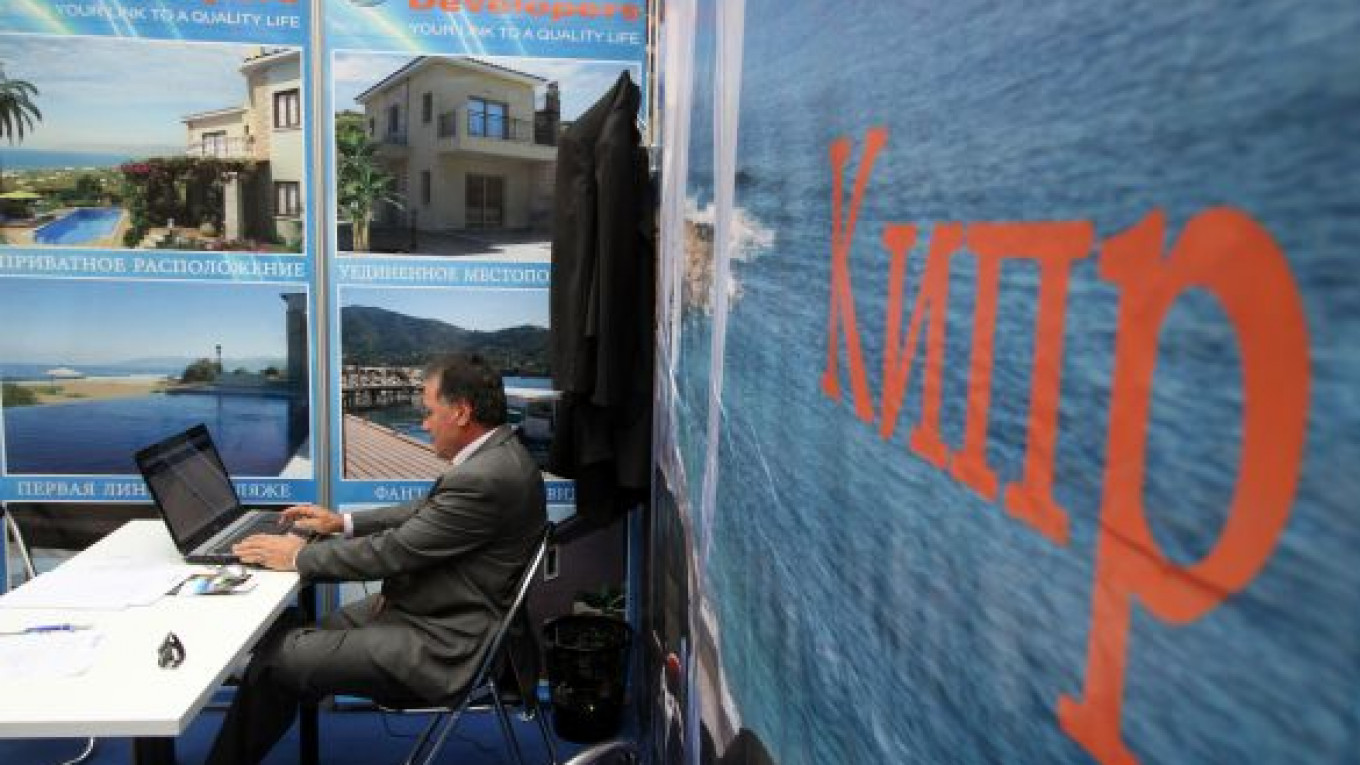A group of deputies on Wednesday sent a bill to the State Duma that would ban government officials from owning properties and opening bank accounts abroad, in a measure to increase transparency among officials and prevent them from being recruited by foreign security services.
The bill targets officials in both federal and municipal government agencies, including those working in the Prosecutor General's Office, the Investigative Committee, the Federal Customs Service, as well as State Duma deputies and the Federation Council senators, said one of its authors, Vyacheslav Lysakov, a deputy with United Russia.
It also bans spouses and minor children of those officials from having any foreign assets, said Lysakov, who is also chief of staff of the All-Russia People's Front.
Passing the bill will "ensure the independence of Russia and promote making unbiased governance decisions," he said in a telephone interview. "If a person has one foot in a foreign country, this can't speak in favor of that person's independence."
Andrei Lugovoi, co-author of the draft and a deputy with the Liberal Democratic Party in the State Duma, said that individuals who own property abroad are potential candidates to be employed by foreign security services.
"Given that officials often have access to state secrets, the safety of Russia depends on whether they have property abroad," he told RIA-Novosti.
Pushing forward this initiative might also be an effort to counter criticism by the opposition of the NGO law, which requires nongovernmental groups receiving funding from abroad and engaging in political activity to register as foreign agents, said Sergei Markov, vice rector of the Plekhanov Russian University of Economics.
One of the law's harshest critics, A Just Russia deputy Ilya Ponomaryov, said last month that United Russia is the only party in the State Duma that receives foreign grants and that those supporting it "vote for the withdrawal of money from Russia."
Later that month, Ponomaryov tweeted that he plans to draft a bill requiring that State Duma deputies who keep more than half of their savings in foreign bank accounts be checked by the Federal Security Service "to figure out whether that person is acting in the interests of foreign countries."
Lysakov said the bill he had drafted with other deputies, who include Valery Trapeznikov of United Russia and Alexander Ageyev of A Just Russia, will be considered by the State Duma in the fall and — if passed — will go into effect starting January 1. After that, government officials will have six months to sell their real estate abroad and close bank accounts, transferring the funds to Russia.
The document stipulates that those failing to do so would face a fine of 5 million rubles ($154,650) to 10 million rubles or a prison term of up to five years, Lysakov said.
Such a punishment might be too tough for the goals voiced by the authors of the bill, and it makes enforcement of those measures questionable, said Andrei Goltsblat, managing partner at Goltsblat BLP.
The measure might be effective in the fight against corruption, as it might help prevent tax evasion, he said by telephone.
However, the authors of the bill said it might face resistance from their Duma colleagues, a large portion of whom own properties outside the country.
The deputies "won't be very excited" about the initiative, which has a 50/50 chance of being approved in the fall, Lysakov said.
"Our task will be to convince colleagues that this measure is being taken on time … and fulfills the citizens' demand" to ensure more transparency in the country's governance, he said.
A Message from The Moscow Times:
Dear readers,
We are facing unprecedented challenges. Russia's Prosecutor General's Office has designated The Moscow Times as an "undesirable" organization, criminalizing our work and putting our staff at risk of prosecution. This follows our earlier unjust labeling as a "foreign agent."
These actions are direct attempts to silence independent journalism in Russia. The authorities claim our work "discredits the decisions of the Russian leadership." We see things differently: we strive to provide accurate, unbiased reporting on Russia.
We, the journalists of The Moscow Times, refuse to be silenced. But to continue our work, we need your help.
Your support, no matter how small, makes a world of difference. If you can, please support us monthly starting from just $2. It's quick to set up, and every contribution makes a significant impact.
By supporting The Moscow Times, you're defending open, independent journalism in the face of repression. Thank you for standing with us.
Remind me later.






